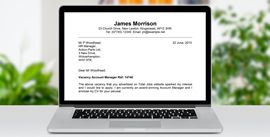How to be better prepared and more confident at a job interview and get the job offers you want

You can share this article by clicking on the buttons below:
In this interesting new article on preparing for job interviews, you'll learn about:
- The different types of employers / interviewers you may face at a job interview.
- Specific problems you may encounter at an interview with each of the different types of employer.
- How to thoroughly prepare for an interview with each type of employer and how to boost your own confidence.
We all hate job interviews!
- That horrible feeling of mixed emotions, on one hand the glee of having been invited to an interview, but on the other hand the awful feeling of dread that you might blow your chances when you have to 'perform' at your best.
- As the day approaches your stomach is in knots and the nerves kick in - in fact despite the potential new job outcome you feel like it might be better to forget the whole thing.
- It's all about the fear of the unexpected.
- But what if you could prepare for this nerve-racking event and make it a pleasurable opportunity that you looked forward to?
- The good news is that 'Preparation is the price of superiority!'
- Why not beat the competition and be confident and relaxed when you attend a job interview.
What type of employer might you be dealing with?
- The worst case scenario is a small owner-managed business, with a poorly written job advert, which means that inappropriate people will apply and possibly be interviewed.
- In a small organisation there may not be an HR department and they may not have either a job description or person specification, which makes it harder for you to prepare for the interview itself.
- A larger organisation with an HR department will have a more rigorous recruitment process, with a well-defined job description and person specification, making it easier for you to prepare beforehand.
Problems you may encounter with a smaller organisation
- The decision-maker / interviewer is likely to be unskilled in interviewing / recruitment matters.
- There may not be a job description or person specification, which means that they won't really know who they want, because the job hasn't been well defined, so it's much harder to recruit the right person for the job.
- They will have a tendency to recruit clones of themselves as they feel they would get along with them best - this can produce an incestuous management structure that is often very inhibitive to growth and new concepts.
- The interview may not examine the applicants skills and experience in an objective fashion, and they will rely on the gut feeling of the interviewer and how well they got on with the applicant.
- The interview will use poorly thought out questions and possibly different interviewees will be asked different questions making a true comparison between all the applicants impossible.
- The ultimate hiring decision is highly likely to be subjective and a non-threatening new staff member who will be easy to manage will be appointed.
- This scenario is more challenging to prepare for but not impossible (more about this in a minute).
Larger organisations make it easier for good applicants who are well prepared
- Larger employers will be more organised and possibly be better at making an objective recruitment decision.
- The advert for the job will be accurate and the most appropriate applicants will be interviewed.
- They will have a dedicated and expert HR department.
- The line managers and their HR counterparts will be trained in recruitment process matters and interview skills.
- There will be a job description and person specification, which means that they have carefully defined the profile of the person they want to recruit.
- They will make an objective decision based on competency or behavioural type questions that will be asked of all interviewees and their answers points scored by a panel to ensure a consistent comparison.
- This all means that to do well at an interview you will need to be thoroughly prepared, as they will be making objective decisions based on how well you answered their questions compared to all the other applicants.
How to prepare for an interview and be more confident
- Each of these two employer scenarios will come with different challenges in terms of preparing to perform at your best during the interview.
- The smaller organisation will require more second-guessing and the larger employer will easily catch out the unprepared interviewee!
Preparing for an interview with a smaller organisation:
- There is no doubt you will be up against an unwritten set of rules here.
- Without a job description and person specification you will not know what to expect and the employer will not know when they are faced with the best applicant.
- It makes the whole process a little more hit and miss.
- Try to identify the list of skills and experience that they will want based on their actual job advert and other similar job adverts, job descriptions and person specifications that you've seen.
- List out the skills and experience, and prioritise them in terms of how important they are to the job, starting with the most important.
- Now go through this list, thinking about the type of interview questions you will be asked - taking into account that the questions will not be well composed and are likely to be more direct.
You have now defined what to compose your killer answers about!
- The key here is to answer with an example of where / how you have used the relevant skill / experience - and then finish your answer with a positive outcome (the final part of your answer is the part that is remembered).
- You should end up with a list of subjects for questions and your pre-prepared example-based answers.
Keep you answers brief and to the point.
- If the interview is scheduled for an hour then consider how many questions you might reasonably be asked. There may be 20 at only 2.5 minutes each including the question and answer and a bit of exchanging pleasantries at the beginning and end of the interview.
- Just over 2 minutes per question including setting the scene in your answer is not long! Do a dry run with your potential answers ending on a killer, positive adding-value ending.
Preparing for an interview with a larger organisation
Now repeat the above exercise for the second type of employer.
- Be driven by the job description and person specification - often these things are split into essential and desirable attributes - desirable being the ones that you could be trained on, essential meaning must have!
- This process will be 100s of times easier with a well-organised employer.
- Same rules apply but as the role is clearly defined it will be a lot easier.
- Their questions will be objective and well-composed and will be linked specifically to the job description and person specification.
Other considerations:
- To do well at an interview, you need to build a good rapport with the interviewer; this is especially important with a smaller employer, as it's likely you will be working directly with them - they won't employ you if they don't like you!
- You may be introduced to other employees, so make sure that you're friendly and nice to everyone you meet, as their opinions may influence who is offered the job (again this is very important with a smaller employer).
- Being well prepared for an interview will really boost your confidence, because you'll know what to expect, the type of questions they will ask and have your answers already in your head.
Share This Article
You can share this article by clicking on the buttons below:
Need to improve your interview performance and confidence at an interview?
Interview preparation is all about knowing what to expect and making sure you are equipped to deal with it in the best way.
- Interview Questions
- List of interview questions
- Answering interview questions
- Good interview questions
- Top interview questions and answers
- Example interview questions
- Typical interview questions
- Job interview questions
- Questions to ask the interviewer
- Group interview tests
- Panel interviews
- Interview body language
- Interview problems
- Interview question what are your strong points
- Interview question not meeting deadlines






